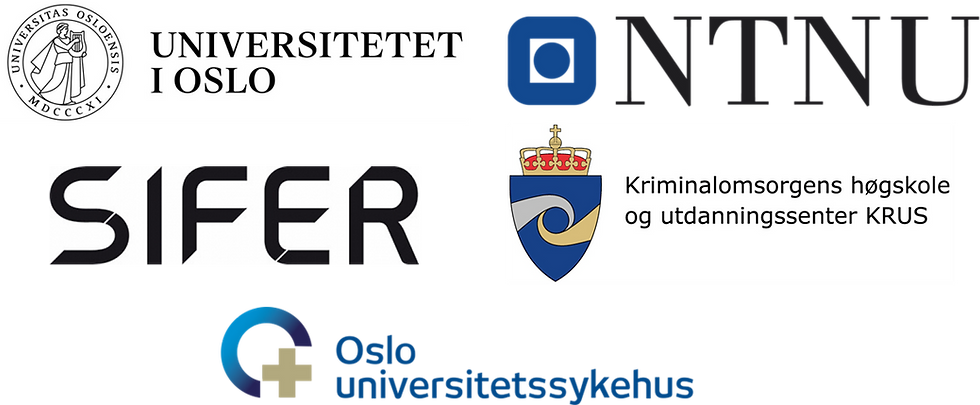Ny ansatt: Nicoline Lokdam
- 31. okt. 2019
- 2 min lesing
Den 15. oktober fikk PriSUD-prosjektet sin første stipendiat; Nicoline Lokdam. Nicoline kommer fra Aarhus i Danmark og har tatt en Mastergrad i Public Health Science ved Universitet i København. I sin masteroppgave "The human dumping ground? A qualitative study of the punitive use of solitary confinement and its consequences for inmate resocialization in Danish prisons" undersøkte hun bruken av isolasjon som disiplinær straff i danske fengsler. Les et engelsk sammendrag av oppgaven nederst i saken.

I sin PhD-periode skal Nicoline jobbe primært med data fra NorMA-studien og koblinger av disse dataene med fengselsregisteret (KOMPIS), samt data fra Norsk Pasientregister (NPR). Nicoline har erfaring med både kvalitativ og kvantitativ metode, noe som er enorm styrke for PriSUD-prosjektet, som har en planlagt kvalitativ utvidelse.
Tidligere har Nicoline jobbet for DIGNITY - Danish Institute against Torture. Her jobbet hun med forskning på sårbare grupper, monitorering av danske fengsler og helserelaterte konsekvenser av fengsling.
The human dumping ground? A qualitative study of the punitive use of solitary confinement and its consequences for inmate resocialization in Danish prisons
Abstract: This thesis investigates the punitive use of solitary confinement in Danish prisons. How it is used in daily practice in the prison, how it is perceived by prisoners and how the segregation affects the resocialization process of the prisoners. To investigate this, a qualitative research design was developed, including observations and semi-structured interviews with ten prisoners and ten staff members in two Danish male prisons, one with an open regime and one high security prison. The results show differences in how the punishment cell is used, how it is perceived, and how it affects the prisoners and their resocialization. These differences can be socially conditioned, which can put vulnerable and exposed prisoners at a greater risk of ending up in punishment cell, making the experience more distressing and affecting them worse, compared to the other prisoners. Due to this differentiation, the prison run the risk of intensifying the social and economic inequities among prisoners, putting the most vulnerable prisoners in an even worse position, both in prison and upon release. On this ground, the thesis presents some implications for practice, further research and policy, focusing on how to reduce the social inequity of the punishment cell.








Kommentarer